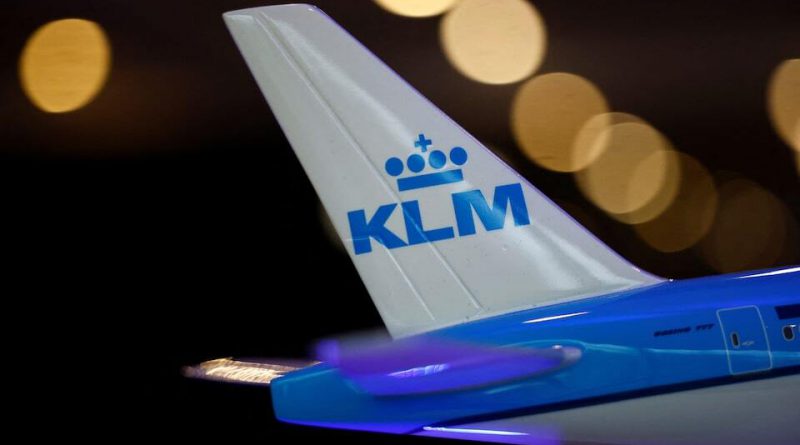KLM Secures Two-Year Labor Deal Bringing Stability and Fair Growth for Ground Staff
Dutch airline KLM has reached a comprehensive two-year labor agreement with five major trade unions representing ground staff, marking a significant step toward stability, employee welfare, and sustainable growth.
The deal features pay raises, bonuses, and enhanced retirement benefits, underscoring KLM’s commitment to its workforce amid a dynamic aviation industry.
In a positive move that brings long-awaited relief and optimism to its workforce, KLM Royal Dutch Airlines has finalized a two-year collective labor agreement (CLA) with five trade unions representing ground staff in the Netherlands.
The new agreement, retroactive from March 1, 2025, through February 28, 2027, reflects the airline’s commitment to ensuring fair compensation, improved work-life balance, and long-term job security for its employees.
The deal comes as the aviation industry continues to recover from post-pandemic challenges, with airlines striving to maintain financial stability while keeping employees motivated and secure.
KLM’s announcement has been met with appreciation from staff and stakeholders alike, as it sets a tone of collaboration and mutual respect in labor relations.
Under the new agreement, KLM will implement a gradual salary increase totaling 3.25%, in addition to one-time net bonus payments of €500 in December 2025 and €250 in January 2026.
These financial enhancements are designed to acknowledge employees’ dedication and hard work during a period marked by operational pressures, inflationary costs, and restructuring efforts across the aviation sector.
One of the most noteworthy aspects of the agreement is the continuation of the 80-90-100 scheme, a program that allows senior employees to work 80% of their regular hours while receiving 90% of their salary, with full pension accrual maintained.
This initiative has been widely praised for supporting older employees in balancing their professional and personal lives, while ensuring that their retirement benefits remain intact.
Miriam Kartman, KLM’s Chief Human Resources Officer, expressed satisfaction with the outcome, emphasizing the importance of collaboration during challenging times.
“We are pleased that we have reached a CLA with all five trade unions. In KLM’s current financial reality, we have come together to make solid agreements on remuneration, career development, productivity, and flexibility,” she said.
Kartman’s statement highlights the airline’s focus on balancing employee welfare with long-term operational efficiency.
The agreement also marks a turning point following months of labor unrest. Earlier this year, two of the largest unions, FNV and CNV, had rejected previous proposals and continued to organize strikes demanding better pay and working conditions.
These labor actions caused disruptions across KLM’s ground operations, affecting baggage handling, maintenance, and logistics. The new CLA, achieved through open dialogue and compromise, is expected to restore calm and rebuild trust between management and workers.
Beyond the immediate financial aspects, the agreement also touches upon professional development and productivity initiatives.
KLM aims to invest in skill enhancement programs to help employees adapt to new technologies and digital tools being integrated into aviation operations. This focus on career growth ensures that the workforce remains agile and competitive, supporting the airline’s broader strategic goals in a rapidly evolving industry.
The timing of this deal is particularly significant for KLM. As global travel rebounds and competition intensifies, the airline recognizes that retaining skilled and motivated staff is crucial to maintaining its service quality and operational reliability.
Labor stability, in this context, translates directly into stronger performance, improved customer satisfaction, and a more resilient organization.
From an industry perspective, KLM’s new CLA stands out as a balanced model of corporate responsibility.
While several airlines across Europe have faced strikes and ongoing disputes over pay and conditions, KLM’s proactive engagement with unions demonstrates how open negotiation can lead to sustainable outcomes.
The agreement underscores the company’s recognition that its workforce is its greatest asset — and that investing in people ultimately drives long-term success.
Moreover, the labor deal aligns with KLM’s broader sustainability and inclusivity goals. By retaining the 80-90-100 scheme, the company continues to prioritize employee well-being, diversity in age groups, and equitable work structures.
This move not only benefits current employees but also strengthens KLM’s reputation as a responsible and people-centric employer.
In an era where the aviation industry faces mounting challenges — from environmental regulations to evolving customer expectations — fostering strong internal relationships has never been more important.
KLM’s latest agreement sends a clear message that collaboration and compromise can yield positive results, even in a complex global economy.
The two-year labor deal is expected to provide KLM with a solid foundation for continued growth and innovation while ensuring that employees share in the airline’s success.
By putting people first and fostering mutual trust, KLM has taken a major step toward securing both its workforce’s confidence and its position as one of Europe’s most respected carriers.



